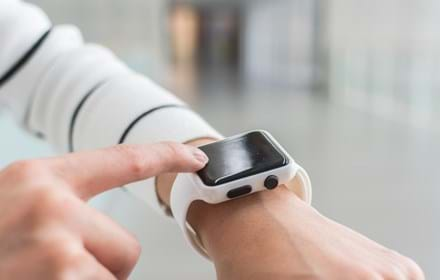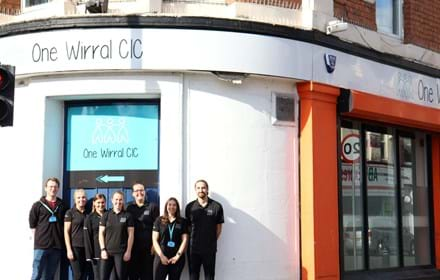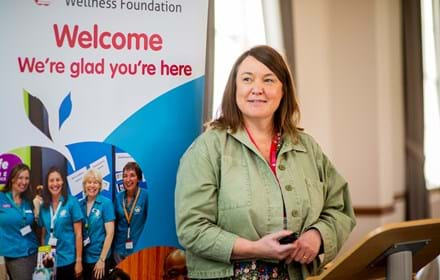
Ups and downs - Exploring the history of hypoglycaemia and hypoglycaemia unawareness in diabetes research
Read Day One of DRWF Research Manager Dr Eleanor Kennedy’s blog reports from the 14th International Conference on Diabetes Technologies & Treatments (ATTD 2021) held this year as a fully virtual meeting.
The virtual conference offered exchanges on the latest scientific advances and best practices in our field, updates from industry partners on the latest innovations and tech, and fantastic online networking opportunities.
The ATTD is back!
The 14th International Conference on Advanced Technologies & Treatments for Diabetes (ATTD 2021) took place online from the 2nd to the 5th June this year, with an impressive line-up of speakers and an audience of more than 3,000 delegates from 69 countries.
Introducing the meeting, the conference co-ordinators and diabetes technology heavyweights, Professor Moshe Philip from Tel Aviv and Professor Tadej Battelino from Ljubljana noted that the venue of last year’s ATTD which would have been in Madrid had been turned into a Covid-19 field hospital and many deaths to this terrible virus had ensued both in Spain and elsewhere with nowhere spared the devastation of this pandemic.
Hypoglycaemia and hypoglycaemia unawareness
Hypoglycaemia (low blood glucose levels) and hypoglycaemia unawareness remain key issues in diabetes, despite the exciting developments to be discussed at ATTD 2021. Professor Stephanie Amiel, King’s College London, a distinguished figure in the investigation of the pathogenesis of iatrogenic hypoglycaemia and ways of reducing the risk was the first keynote speaker at the conference. She is also the co-developer and lead of DAFNE and has participated in the UK’s islet transplantation programme. Last, but not least, she has never missed an ATTD meeting.
Professor Amiel said: “My title today is From Hesiod to Hollywood – getting the best blood glucose for rational thinking,” going on to give a brief history of hypoglycaemia research. In 1922, just a year after the discovery of insulin, diabetes patient, Elizabeth Hughes, was reported to sleep with her nurse, Blanche, for fear of nocturnal hypoglycaemia. Blanche saved her patient’s life on many occasions, with orange juice or a “molasses kiss” (the latter are still available in the USA). Then, in 1948, British physician R.D. Lawrence, one of the first people in the UK to receive insulin, gave the first description of hypoglycaemia unawareness, drawing on his own experience.
Moving on, 1978 saw the birth of the modern insulin era with the invention of the insulin pump and home glucose monitoring, followed by the insulin pen. Meanwhile, Professor Amiel and her team were studying hypoglycaemia unawareness.
Professor Amiel said: “With colleagues in Princeton, New Jersey in the US, we took a group of people with type 1 diabetes and hypoglycaemia unawareness and worked with them to avoid exposure to plasma glucose of under 3mmol/l and we were thus able to restore the subjective stress responses to the hypoglycaemic challenge. This is where my reference to Hesiod comes in. He is credited with being the first to say, ‘moderation in all things’ and the point about this is that, rather than just telling our patients to keep their blood glucose below a certain level, we also had to tell them to keep it above a certain level and this was perhaps the start of Time in Range.”
Following the development of DAFNE, which has been shown to reduce hypoglycaemia, ATTD came onto the scene in 2008. Reports from that meeting said that the high spots were new pumps and the introduction of continuous glucose monitoring followed, in 2012, by the beginning of closed-loop therapy.
Professor Amiel said: “So, is ATTD 2021 the end of the road for hypoglycaemia and is this presentation my swansong? Well, no. We already know that impaired awareness of hypoglycaemia occurs in about 25 to 40% of adults with type 1 diabetes and this increases the risk of hypoglycaemia about six-fold. So, what is going on?”
Interviewing people with hypoglycaemia unawareness led Professor Amiel’s team to the development of a new group intervention programme called HARPdoc at King’s College Hospital in London.
Professor Amiel said: “HARPdoc’s unique selling point is that it uses clinical psychology theory to address the issues around hypoglycaemia that we elicited and helps people change their responses to those thoughts.”
A randomised clinical trial comparing HARPdoc with other educational interventions to restore hypoglycaemia awareness has just been completed.
And Hollywood? HARPdoc is now online (the “silver screen”) as a result of Covid-19 restrictions and Professor Amiel revealed, anecdotally, that most patients had experienced real improvements.
Professor Amiel said: “So, in ATTD 2021 we are going to hear about the latest advances in technology. But the point that I would make is that those most at risk are the people who are perhaps least able to access these technologies. I believe we can help them.”
Lessons to be learned in diabetes care from the impact of Covid-19
The meeting moved on to a session about the ubiquitous Covid-19 and the damage it has done to people with diabetes. Irl Hirsch, from Washington State University, set out the lessons to be learned from the pandemic and diabetes.
First, there is evidence showing that diabetes, obesity and minority ethnicity are linked to an increase in mortality. Next, the impact of glucose control before infection and hospitalisation is conflicting from the studies we have seen.
Dr Hirsch said: “There’s never a reason to keep blood sugars poorly controlled. It’s just that with this retrospective data we don’t have any definitive answer.”
He then reviewed the evidence of the impact of ACE-2 inhibitors, DPP-4 inhibitors, metformin and SGLT-2 inhibitors on Covid-19 and diabetes, concluding that the jury is still out. But there is generally no need to stop diabetes medication when someone with diabetes is ill with Covid-19.
And the final lesson is about telemedicine which is generally proving a satisfactory substitute for face-to-face diabetes care but faces some challenges – not least a concern that retinopathy and foot ulcers may be being missed.
Anthony Ceriello, who leads the EASD Study Group on cardiovascular disease and diabetes, put out some similar messages, noting that hyperglycaemia and glucose variability are important risk factors in Covid-19 prognosis. He also highlighted the role of antidiabetic drugs and steroids and touched on the controversy surrounding hydroxychloroquine as a treatment for Covid-19.
Research funding for long-Covid effects on people living with diabetes
Finally, William Cefalu, Director of Diabetes, Endocrinology and Metabolic Diseases at the National Institutes of Health in the US spoke about the research his organisation is funding in the areas of interest to NIDKK (the National Institute for Diabetes, Digestive and Kidney Disease) such as the so-called long-Covid, acute kidney injury, diabetes complications and new-onset diabetes following Covid-19 infection.
Dr Cefalu concluded: “What I wanted to do today is let you know that the National Institutes of Health has a very robust and comprehensive programme evaluating Covid-19 and research and, specifically for NIDKK, we have two funding opportunities that are evaluating specific diseases of interest for us and, in the future, clearly we need to understand what is happening with diabetes complications and new onset cases of diabetes following Covid-19, as we move forward.”
Further reports to follow – visit DRWF news page
Follow Dr Eleanor Kennedy on Twitter: @DRWFEleanor
Read more reports on diabetes research in the April issue of DRWF’s monthly newsletter Diabetes Wellness News. Subscribe here
Read How people with diabetes could become more ill if diagnosed with Covid-19
DRWF operations during the Covid-19 health crisis
The DRWF team is working remotely. Covid-19 guidance, particularly where it aligns or impacts with diabetes guidance, is shared as quickly as possible through the DRWF website and social media channels with the aim of making it as easy to understand as possible and a reliable source of latest news.
Support DRWF by making a donation here
Find out more about DRWF-funded research here
Find out more about DRWF fundraising here
For latest update follow DRWF on Facebook, Instagram and Twitter
To receive the charity’s latest bulletins as they become available, please sign up here
Read DRWF diabetes information leaflets here
Join the Diabetes Wellness Network here
Recent News


